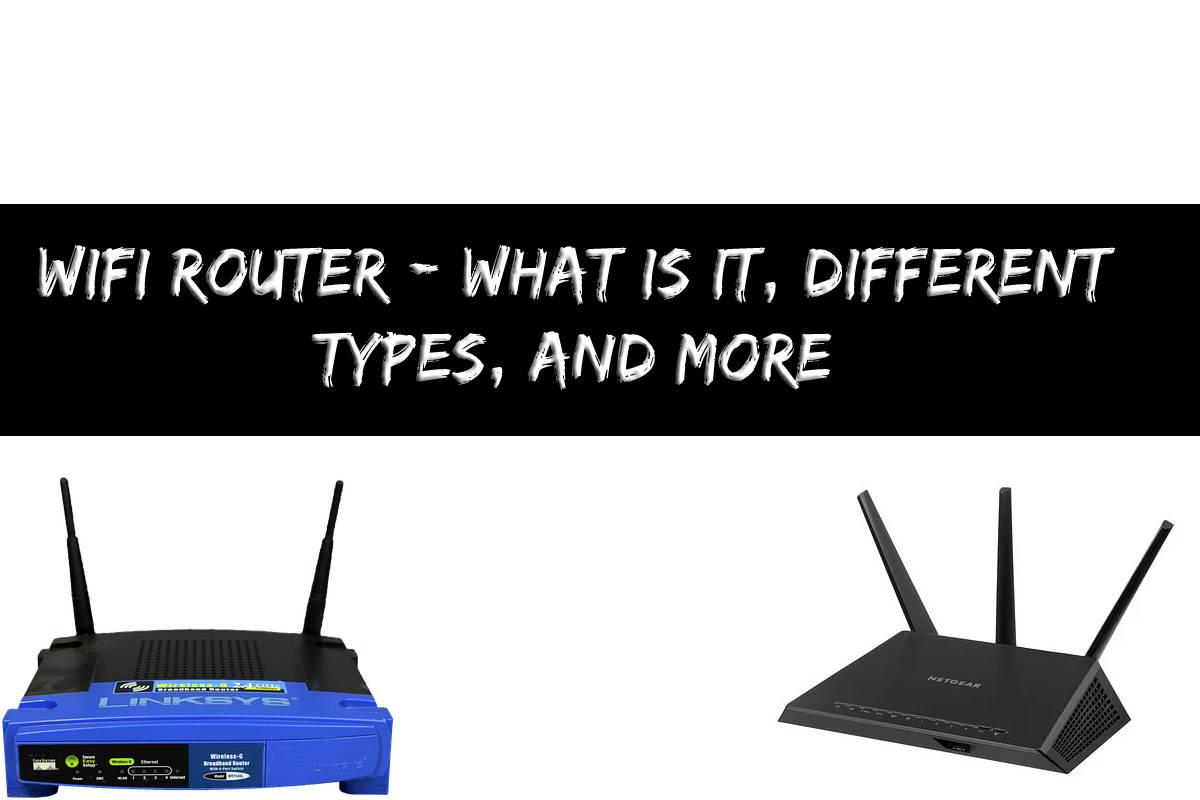Table of Contents
What is a WiFi router?
A WiFi router (or simply a router) is the device that sends the signal that allows your smartphone, tablet, or PC to connect to the Internet without connecting an internet cable to your device or without turning on your mobile data.
If you are near the router, the signal strength is higher, and your internet connection will be better. If you are further from the router, you will notice that the signal strength weakens, web pages may take longer to load or stop loading completely. However, If you move away from a router, let’s say you were in a cafe with excellent WiFi, and you leave the cafe to go somewhere else. Your internet connection will weaken until you are disconnected from the WiFi when you are out of range of the WiFi router’s signal.
Types of Wifi Routers
Really when we say types of routers, we cannot differentiate them by packets but by characteristics. Some only allow signal transmission over WiFi b / g, others that allow WiFi b / g / n, others with multiple input ports, or that process the information better.
So when looking at a router, what we have to look at is the characteristics that interest us (initially, the most important data is the ability to connect several computers by cable, and emitting go signals n.
The router is that device connected to our network and that we mainly use to serve as a WiFi connection. However, going in a more technical sense, the router fulfills the task of connecting multiple devices within a network, managing all the traffic circulating between the connects equipment. In this sense, if we have two computers or more linked through a router, we can establish communications between each one, and the router will be in charge of directing the packets to the correct destination.
Modem, router and access point: how they differ and which best meets your needs
Modem
A modem is a device whose name simplifies its functions: modulate and demodulate the signal. The modem is in charge of connecting to your ISP (that is, to your Internet company), which in turn is the one that provides you with a connection via coaxial cable or fiber optics. The modem’s function is to convert the signal from the ISP, which is analog, to a digital signal it connects.
Outbound : ISP> Analog signal> Ml, which is what the devices understand, and send it to the device to which it isodem> Digital signal> Device
Back to : Device> Digital signal> Modem> Analog signal> ISP
Wifi Router
A router is a peripheral that is responsible for carrying the connection to the devices. It is important to say that a router does not connect to the Internet, but it connects to the modem. A router per se is useless if no modem provides you with an Internet connection. It is like having a mobile without a battery: you have the device but not what allows it to work.
Outbound : ISP> Analog signal> Modem> Digital signal> Router> Various devices.
Back : Various devices> Router> Digital signal> Modem> Analog signal> ISP.
Access Point
An access point, in a nutshell, serves to bring the connection to where there is none. The access point connects to a router, switch, or hub by an Ethernet cable. And emits the WiFi signal in its range of action. Importantly, it should not be confused with a network extender, which works similarly but not the same.
Network extender is a repeater, that is, it collects the WiFi signal emitted by the router and projects it again.
The dimensions of the extra long coupling nuts are described by the Industrial Fasteners in standard IFI-128. It is given a smooth finish. It is cold drawn, or hot rolled depending on the bar used. Threaded coupling nuts with two different thread sizes and profiles are called reducing coupling nuts.
Outbound : ISP> Analog signal> Modem> Digital signal> Router> Access point> Various devices.
Back : Various devices> Access point> Router> Digital signal> Modem> Analog signal> ISP.
If you found this post interesting, I would appreciate it if you would like it or share it with a friend. You can also find other similar quite curious posts within the category.

